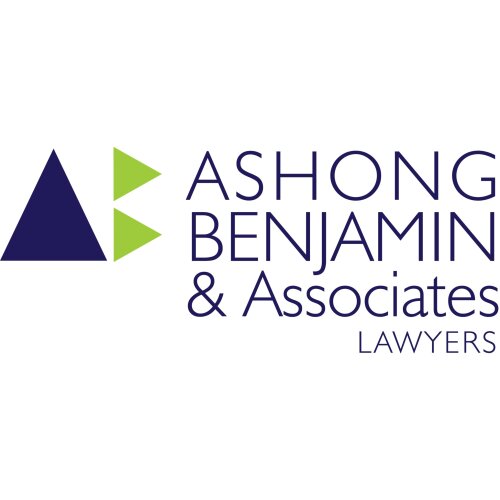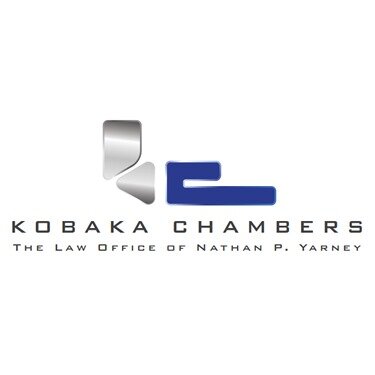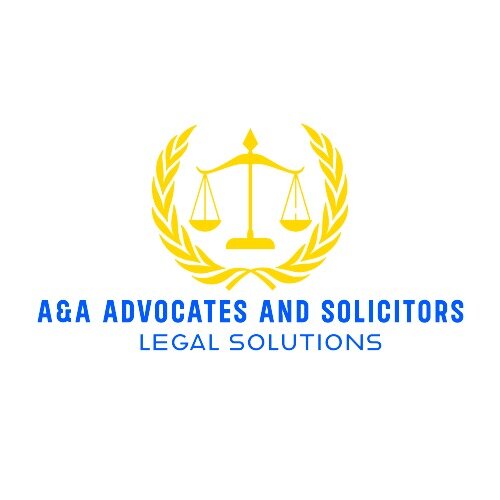Best Pension Lawyers in Ghana
Share your needs with us, get contacted by law firms.
Free. Takes 2 min.
Or refine your search by selecting a city:
List of the best lawyers in Ghana
About Pension Law in Ghana
The pension system in Ghana is designed to provide a reliable source of income for retirees, ensuring financial security after retirement. Managed under the National Pensions Act, 2008 (Act 766), the system incorporates a three-tier pension scheme. The first tier is a mandatory basic national social security scheme managed by the Social Security and National Insurance Trust (SSNIT); the second is mandatory occupational pension schemes managed privately; and the third tier consists of voluntary provident funds and personal pension schemes. These tiers aim to enhance pension benefits and provide comprehensive coverage for workers in both formal and informal sectors.
Why You May Need a Lawyer
Engaging a lawyer specializing in pension law can be advantageous in several situations. Common scenarios include disputes over pension entitlements, understanding complicated regulations, and handling discrepancies in contributions. Legal assistance may also be crucial when navigating ill-defined employment contracts regarding pension benefits, advocating for your rights within pension schemes, and during the transition from one pension scheme to another. A lawyer can help interpret legal documents, represent you in disputes, and provide advice on compliance with pension laws.
Local Laws Overview
The National Pensions Act, 2008, governs pension schemes in Ghana and provides the legal framework for the administration and payment of pension benefits. Key aspects include the administration by the National Pensions Regulatory Authority (NPRA), the establishment of pension fund custodians, trustees, and schemes, and mandatory contributions for employees under various tiers. The pensions law mandates specific retirement age requirements, types of benefits available, and the conditions for accessing these benefits. Understanding the detailed provisions of Act 766 is crucial for both employees and employers to ensure compliance and to make informed decisions regarding retirement planning.
Frequently Asked Questions
What is the minimum contribution period to qualify for a pension in Ghana?
The minimum contribution period is 180 months, equivalent to 15 years, to qualify for full pension under the SSNIT scheme.
Can self-employed individuals participate in the pension scheme?
Yes, self-employed individuals can participate in the third tier of the pension scheme, which includes voluntary provident funds and personal pension schemes.
What happens if I change jobs?
If you change jobs, you must ensure that your new employer continues your contributions to the mandatory pension scheme. You may also transfer existing benefits into a new occupational scheme if applicable.
How is my pension calculated?
The pension amount is calculated based on the formula stipulated by SSNIT, which considers the average of the best three years of your monthly salaries and the number of months you have contributed.
When can I access my pension benefits?
Employees can access their pension benefits once they reach the mandatory retirement age of 60 or in certain cases, early retirement is possible from age 55.
Can my pension be affected by inflation?
Yes, like all financial benefits, pensions can be affected by inflation. However, some schemes have mechanisms, like indexation, to adjust for inflation over time.
What are the penalties for late contributions?
Employers who fail to remit contributions on time may incur penalties and interest charges as prescribed by the NPRA and SSNIT regulations.
How do I resolve a dispute with my pension fund?
Disputes can be resolved through consultation with your pension provider or by filing a complaint with the NPRA if necessary.
Is it possible to receive both a state and occupational pension?
Yes, beneficiaries may receive payments from both SSNIT (first tier) and occupational pension schemes (second tier) depending on their contribution history.
What are survivor benefits?
Survivor benefits are paid to family members or dependents of a deceased member, ensuring continued support to the family after the member’s passing.
Additional Resources
Seek assistance from the National Pensions Regulatory Authority (NPRA) for questions related to pension regulations and compliance. The Social Security and National Insurance Trust (SSNIT) can provide information on contribution status and benefit calculations. Consulting financial advisors or organizations like the Ghana Insurers Association may also offer valuable insights into pension fund management.
Next Steps
If you require legal assistance regarding pensions, consider consulting a lawyer with expertise in pension law. Gather all relevant documents, such as your employment contract, contribution records, and communication with pension providers. Use resources like the Ghana Bar Association to find qualified legal professionals. Attending legal aid clinics may also provide some preliminary assistance. Consider reaching out to pension regulatory bodies or advocacy groups to inform yourself better about your rights and responsibilities within Ghana's pension system.
Lawzana helps you find the best lawyers and law firms in Ghana through a curated and pre-screened list of qualified legal professionals. Our platform offers rankings and detailed profiles of attorneys and law firms, allowing you to compare based on practice areas, including Pension, experience, and client feedback.
Each profile includes a description of the firm's areas of practice, client reviews, team members and partners, year of establishment, spoken languages, office locations, contact information, social media presence, and any published articles or resources. Most firms on our platform speak English and are experienced in both local and international legal matters.
Get a quote from top-rated law firms in Ghana — quickly, securely, and without unnecessary hassle.
Disclaimer:
The information provided on this page is for general informational purposes only and does not constitute legal advice. While we strive to ensure the accuracy and relevance of the content, legal information may change over time, and interpretations of the law can vary. You should always consult with a qualified legal professional for advice specific to your situation.
We disclaim all liability for actions taken or not taken based on the content of this page. If you believe any information is incorrect or outdated, please contact us, and we will review and update it where appropriate.
Browse pension law firms by city in Ghana
Refine your search by selecting a city.

















